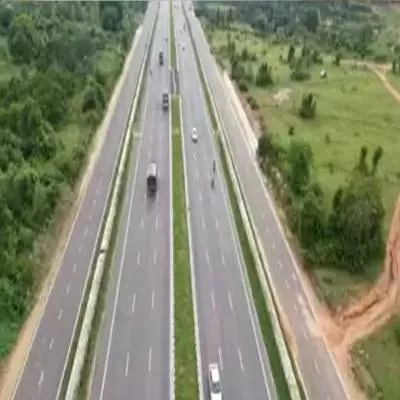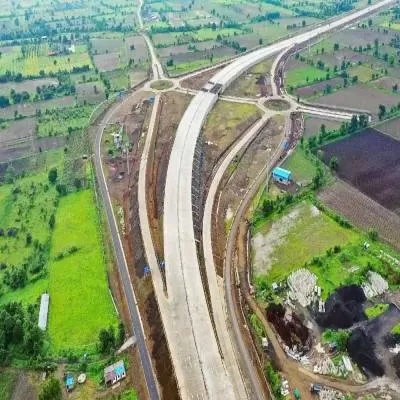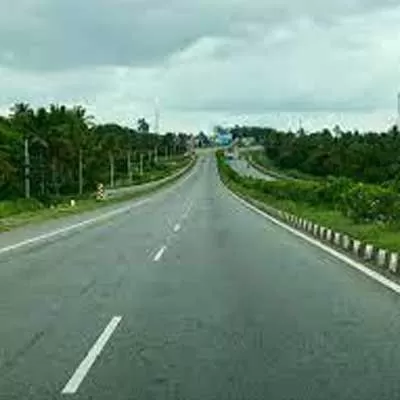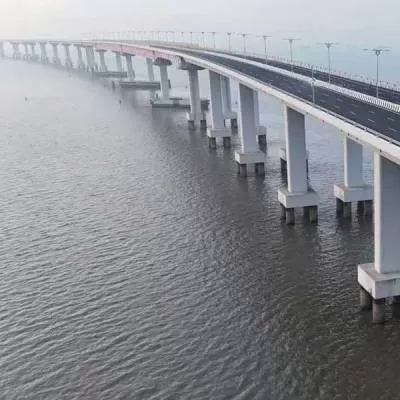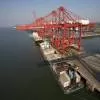- Home
- Infrastructure Transport
- ROADS & HIGHWAYS
- Downside of India’s Infrastructure Contractual Agreement Scenario
Downside of India’s Infrastructure Contractual Agreement Scenario
Something is brewing in India’s current contractual agreement scenario. Here, Dr Ritesh Chandrashekar Tiwari, Director-Highways & Structures, Egis India, highlights how most contractors are not rewarded despite timely completion of projects. He supports contractors’ demands for incentives over and above the promised amount to complete projects on time. “This will help companies to focus more on building their reputation,” he says. “Also, there need to be checks and balances at the client’s end at a more stringent level to monitor delays so that they can be addressed and minimised.”
RA Rajeev, Metropolitan Commissioner, Mumbai Metropolitan Region Development Authority (MMRDA), explains the downside of the current system in a nutshell. According to him, PPP is yet to evolve in India owing to policy changes every five to six years. However, his inclination towards EPC mode is evident as many projects in Maharashtra are based on cash contracts. “In India, EPC contracts terms and conditions have properly evolved over the years,” he adds.
Although quite a few Indian projects are being implemented by foreign companies, the country has the potential to attract more international bidders. For his part, Jagdish Salgaonkar, Senior Vice President-Major Programmes, Aecom, is a firm believer of international contractual practices. “Owing to India’s lopsided contractual agreements, not many international bidders participate, especially from Europe,” he says. Even EPC contracts are modified by the Planning Commission, whereas the international community is familiar with the guidelines of the FIDIC contracting terms and adheres to them.
Sandeep Upadhyay, Managing Director & CEO, Centrum Infrastructure Advisory, raises the red flag on India’s contractual agreements as they mostly favour clients. “After the Vijay Kelkar Committee, there has been a strong impetus on balancing out the contractual obligations from both the public and private prospective for all EPC and HAM projects, which is working in favour of the roads and highways sector,” he adds.
Recently, the Ministry of Road Transport and Highways has revised the model request for proposal (RFP) and contract agreement for National Highway projects to be executed on EPC model. The revised model suggests that in no event shall the cumulative length of encumbered or hindered sections of project highway exceed 10 per cent of the total length. “In case both parties to the agreement comply with the above provision in letter and spirit without any dilution and the concerned authority takes all the required advance actions in fulfilling the above indispensable requirement of exclusive possession of 90 per cent right of way of the project highway, it will certainly help mitigate risks effectively,” says Yogesh Jain, Managing Director, PNC Infratech.
Sunil Srivastava, Managing Director, BARSYL, suggests weightage for technical competence, past history of timely delivery and core competence in contractual agreements. He cites the example of European countries where the lowest and highest bidders are eliminated during the pre-bid process. “Such practices must be implemented in India, especially for mega projects,” he avers.
All considered, most contractors believe that government contracts are one-sided the majority of times and criticise the implementing authorities, believing they look down upon contractors as outsiders, not partners.
SHRIYAL SETHUMADHAVAN and RAHUL KAMAT
Something is brewing in India’s current contractual agreement scenario. Here, Dr Ritesh Chandrashekar Tiwari, Director-Highways & Structures, Egis India, highlights how most contractors are not rewarded despite timely completion of projects. He supports contractors’ demands for incentives over and above the promised amount to complete projects on time. “This will help companies to focus more on building their reputation,” he says. “Also, there need to be checks and balances at the client’s end at a more stringent level to monitor delays so that they can be addressed and minimised.” RA Rajeev, Metropolitan Commissioner, Mumbai Metropolitan Region Development Authority (MMRDA), explains the downside of the current system in a nutshell. According to him, PPP is yet to evolve in India owing to policy changes every five to six years. However, his inclination towards EPC mode is evident as many projects in Maharashtra are based on cash contracts. “In India, EPC contracts terms and conditions have properly evolved over the years,” he adds. Although quite a few Indian projects are being implemented by foreign companies, the country has the potential to attract more international bidders. For his part, Jagdish Salgaonkar, Senior Vice President-Major Programmes, Aecom, is a firm believer of international contractual practices. “Owing to India’s lopsided contractual agreements, not many international bidders participate, especially from Europe,” he says. Even EPC contracts are modified by the Planning Commission, whereas the international community is familiar with the guidelines of the FIDIC contracting terms and adheres to them. Sandeep Upadhyay, Managing Director & CEO, Centrum Infrastructure Advisory, raises the red flag on India’s contractual agreements as they mostly favour clients. “After the Vijay Kelkar Committee, there has been a strong impetus on balancing out the contractual obligations from both the public and private prospective for all EPC and HAM projects, which is working in favour of the roads and highways sector,” he adds. Recently, the Ministry of Road Transport and Highways has revised the model request for proposal (RFP) and contract agreement for National Highway projects to be executed on EPC model. The revised model suggests that in no event shall the cumulative length of encumbered or hindered sections of project highway exceed 10 per cent of the total length. “In case both parties to the agreement comply with the above provision in letter and spirit without any dilution and the concerned authority takes all the required advance actions in fulfilling the above indispensable requirement of exclusive possession of 90 per cent right of way of the project highway, it will certainly help mitigate risks effectively,” says Yogesh Jain, Managing Director, PNC Infratech. Sunil Srivastava, Managing Director, BARSYL, suggests weightage for technical competence, past history of timely delivery and core competence in contractual agreements. He cites the example of European countries where the lowest and highest bidders are eliminated during the pre-bid process. “Such practices must be implemented in India, especially for mega projects,” he avers. All considered, most contractors believe that government contracts are one-sided the majority of times and criticise the implementing authorities, believing they look down upon contractors as outsiders, not partners. SHRIYAL SETHUMADHAVAN and RAHUL KAMAT


